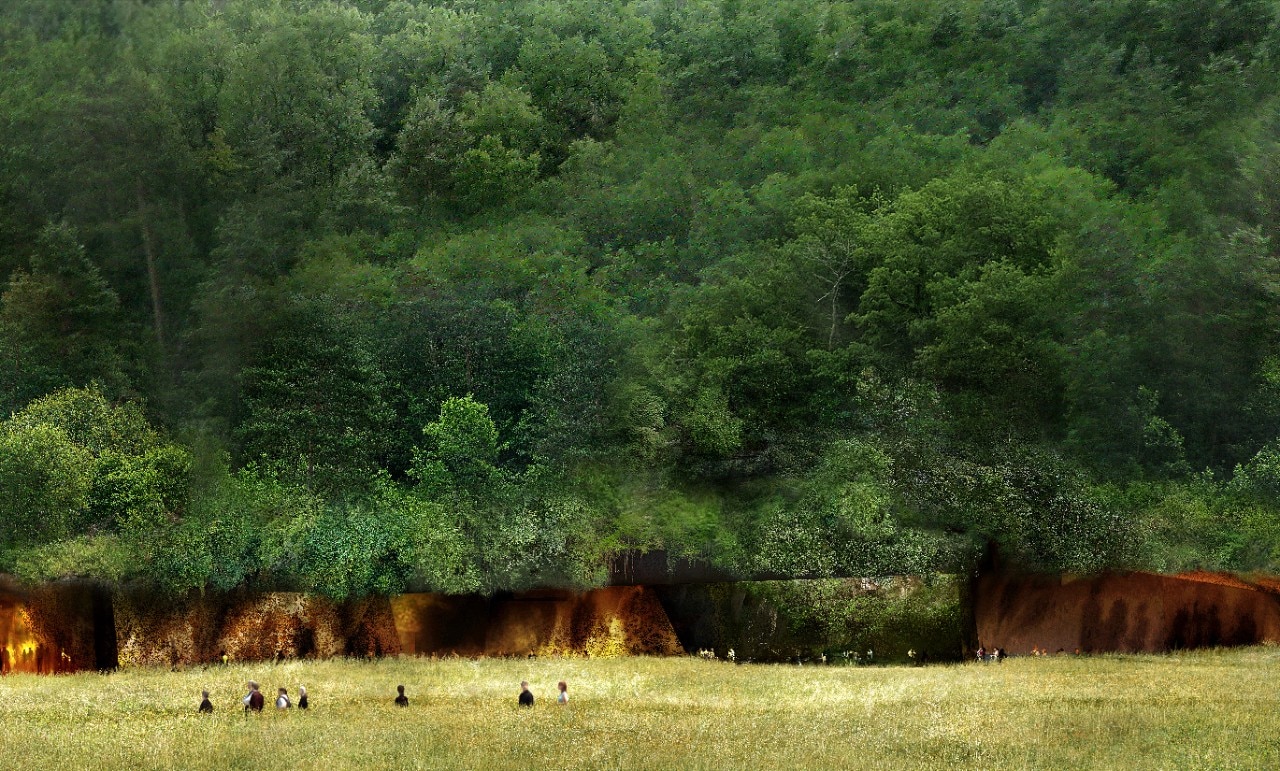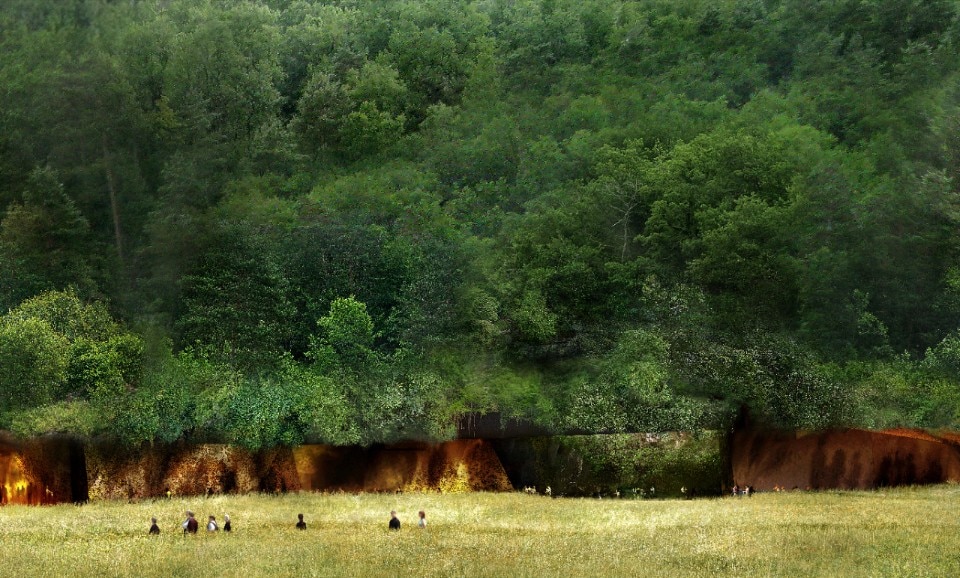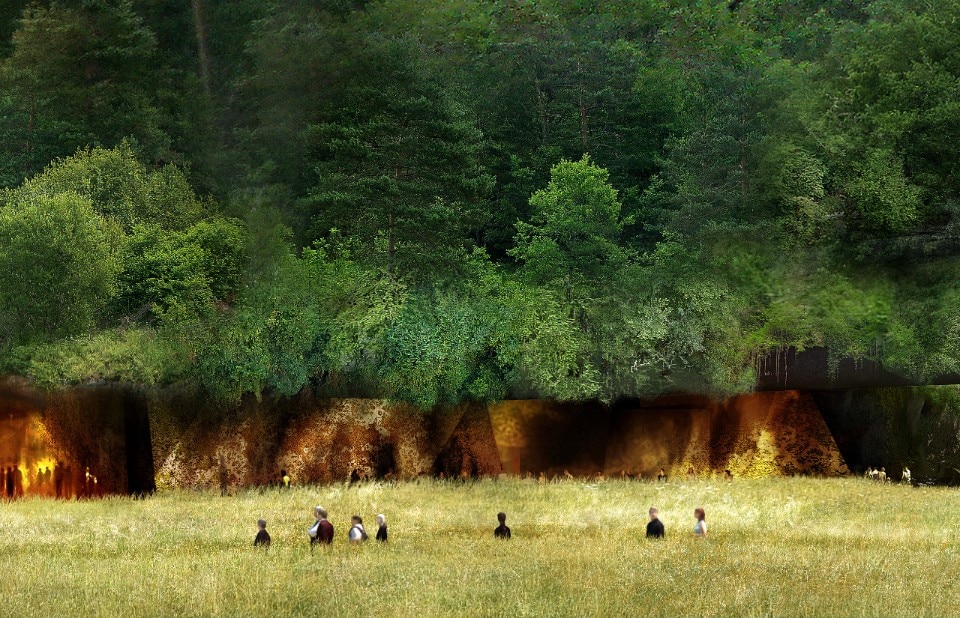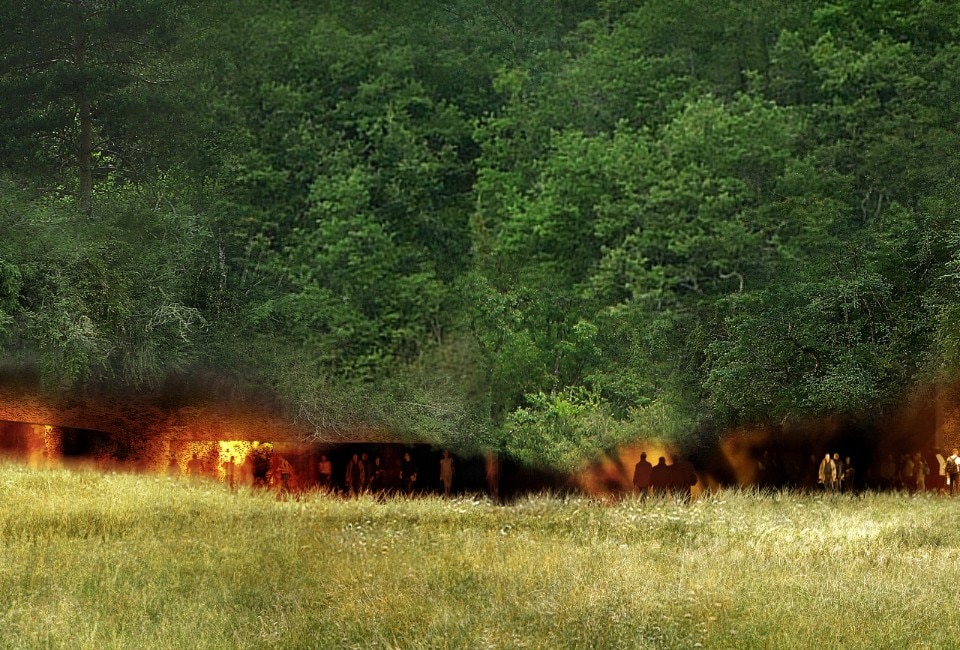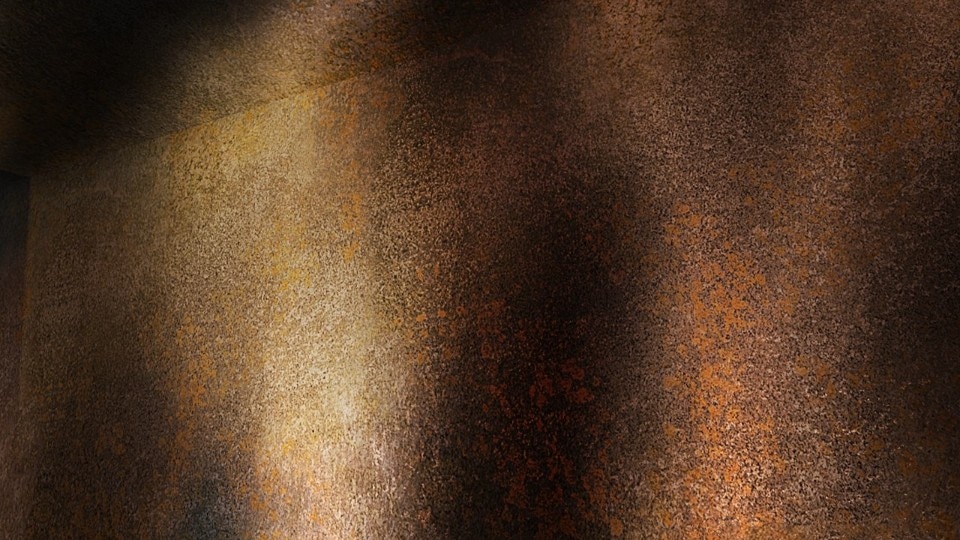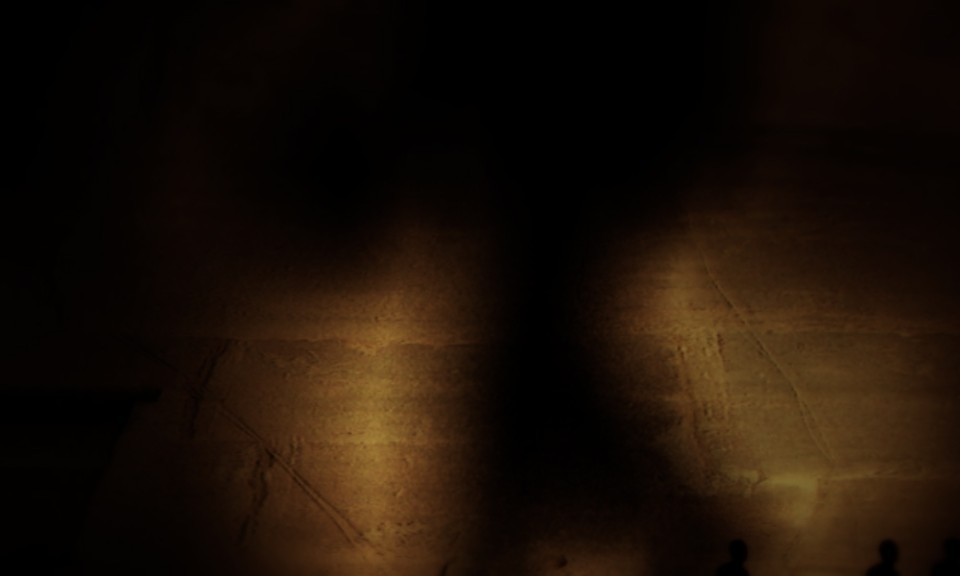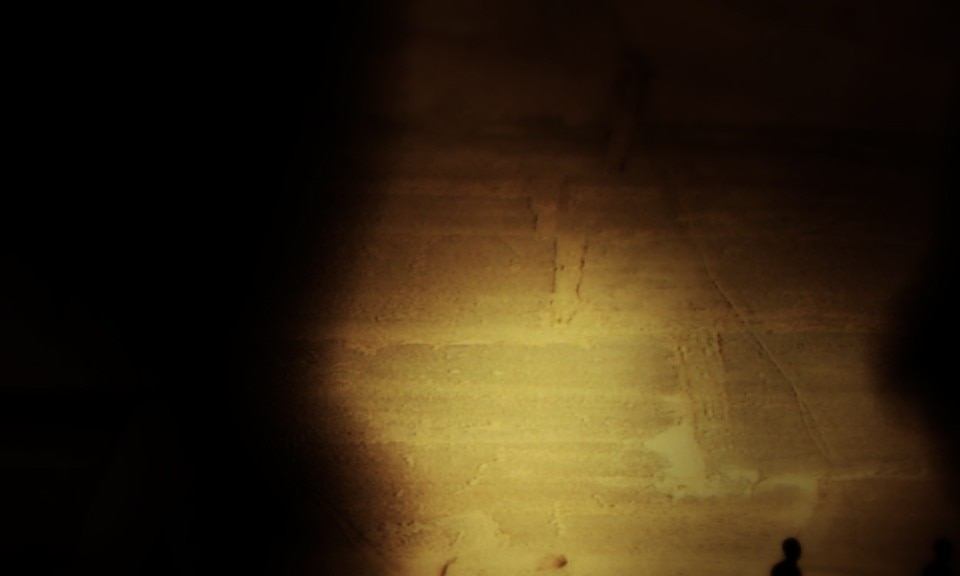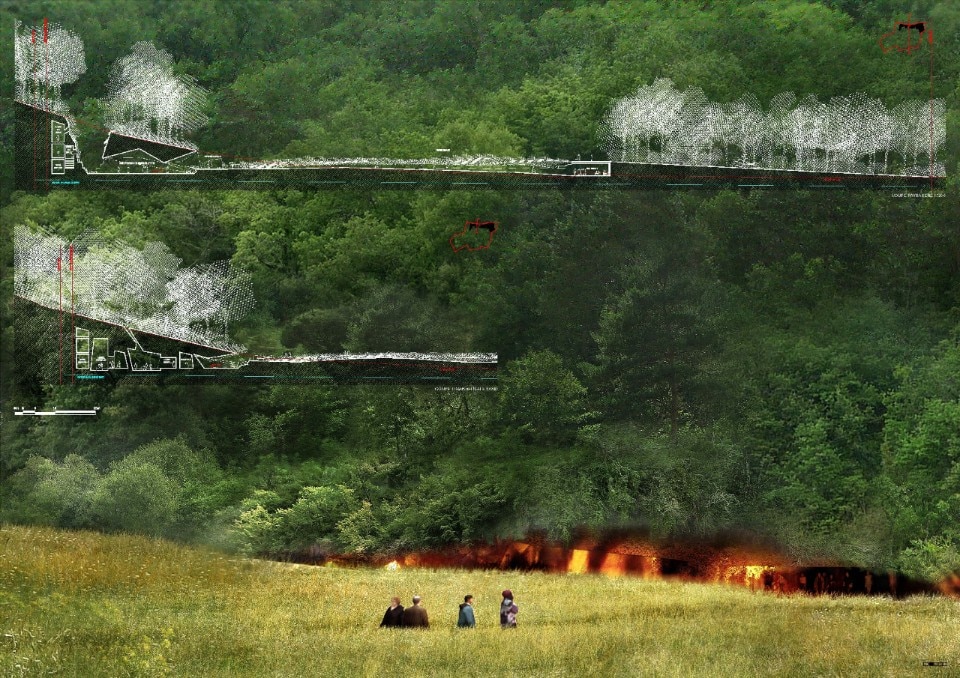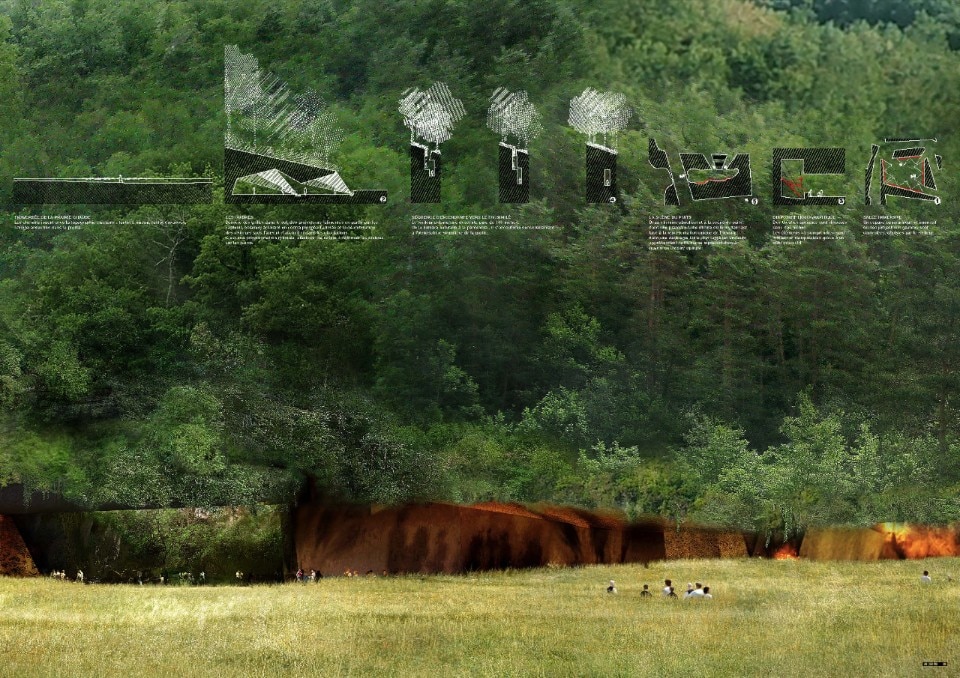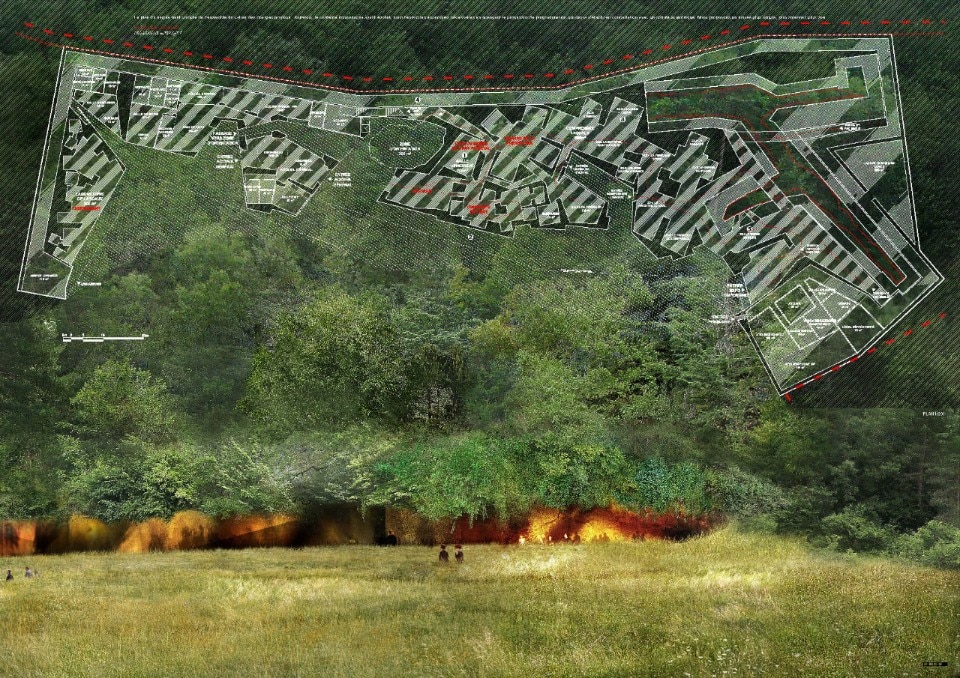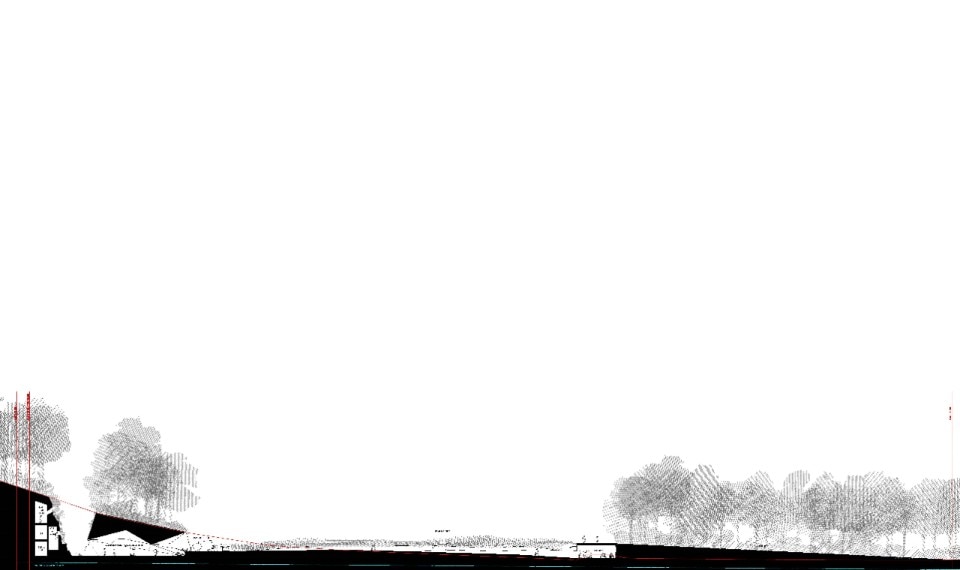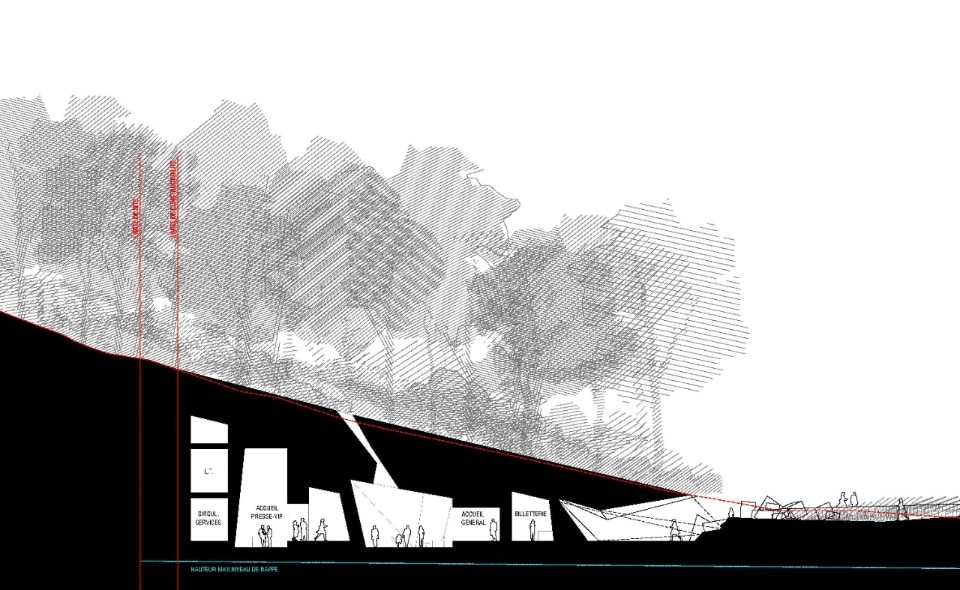This article was originally published on Domus 1062, November 2021.
The design proposal for the Lascaux Museum seeks to distance itself from the panoply of today’s cultural offerings. The caves, with their parietal paintings dating back to early mankind, can only be safeguarded in perpetuity if visitors are constantly given a heightened awareness of being part of the site, its geology and its biotope. The key to nurturing this sense of belonging is by transmitting emotion.
Therefore, the scientific campaign needs to be accompanied by an acute sensitivity to all the spaces, details and different kinds of lights and views. Only art – architecture, light and nature – coupled with a delicate approach can make this place essential viewing as an in-situ tribute to a masterpiece. Several landscape interventions target the visual and auditory protection of the site from the nearby elements of disturbance. The rest of the area will be a welcoming meadow with open and covered pedestrian pathways that will disperse visitors in the landscape.
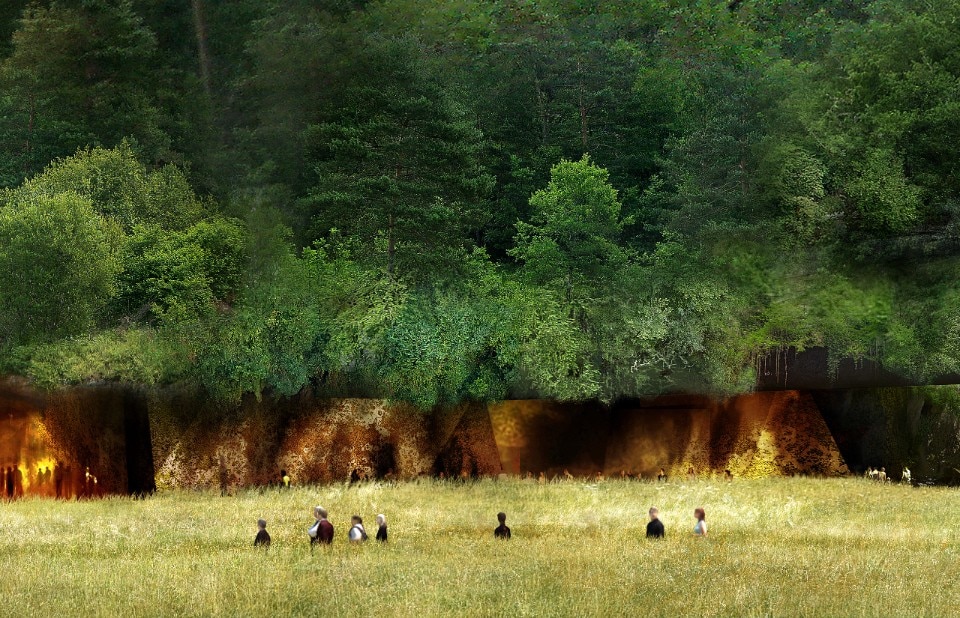
The museum conveys an atmosphere of the spectacular. The hill is slashed by a horizontal fracture of roughly 200 metres, characterised by warm colours that derive from the moving lights. This gives a new image to the site with a metaphysical and poetic connotation. It is an allusion to the myth of Plato’s Cave, a complex mix of geometry and geography that evokes the aesthetics of our beginnings. The structure recessed along the hillside is created by the introduction of interpile sheeting – a double wall with diagonal-rod bracing – where the long and mysterious access ramp is located.
We proposed to streamline the educational programme as we believe that it is not the number of shows and the amount of information that will attract visitors, but rather only a unique aesthetic. To achieve this, the commercial spaces will be kept separate from the cave and placed at the exit.
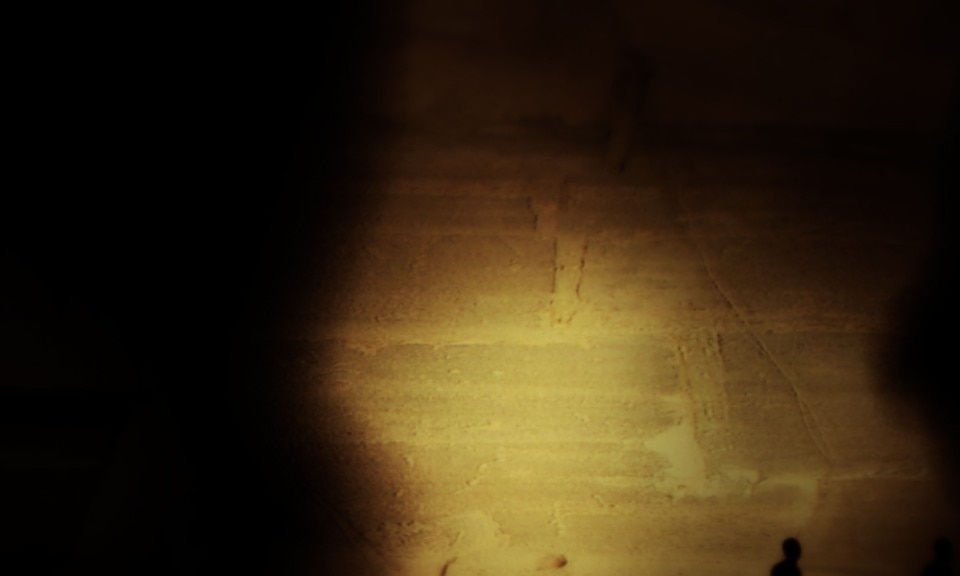
- Project:
- Jean Nouvel – Ateliers Jean Nouvel
- Assistant:
- Samuel Nageotte
- Project architect:
- Thomas Amarsy
- Design team:
- Ikbal Bouaita, Camilla Cerri, Pierre Voirin (architects); Krystelle Denis, Catherine Kirk, Cesar Pesce, Soulayma Sayah (interns)
- Collaborators:
- Eugénie Robert, Vatsana Takham, Élise Taponiers (graphic design), Benjamin Alcover, Michael Kafassi, Mizuho Kishi (rendering), Laura Giuliani (AJN, landscape design)
- Structural engineering:
- EGIS
- Other consultants:
- Michel Cova, dUCKS scéno (scenography), Nathalie Grenet (museography), Michel Desvigne (landscape design), MC2 (lighting design), AVEL Acoustique (acoustics), Nobatek (sustainability), Casso et Associés (fire protection)
- Client:
- Dordogne General Council
- Built area:
- 8,180 sqm
- Competition project:
- 2012




